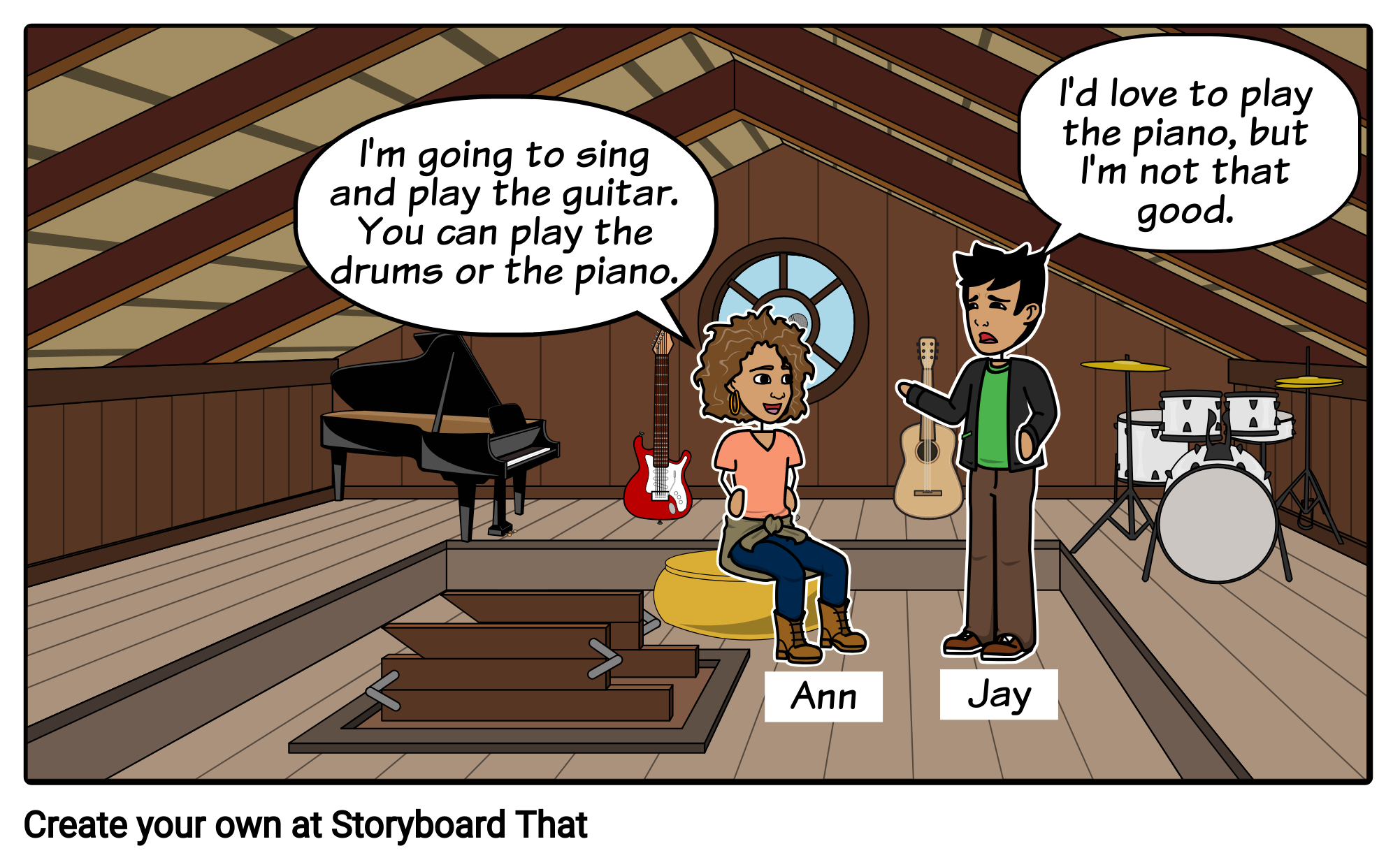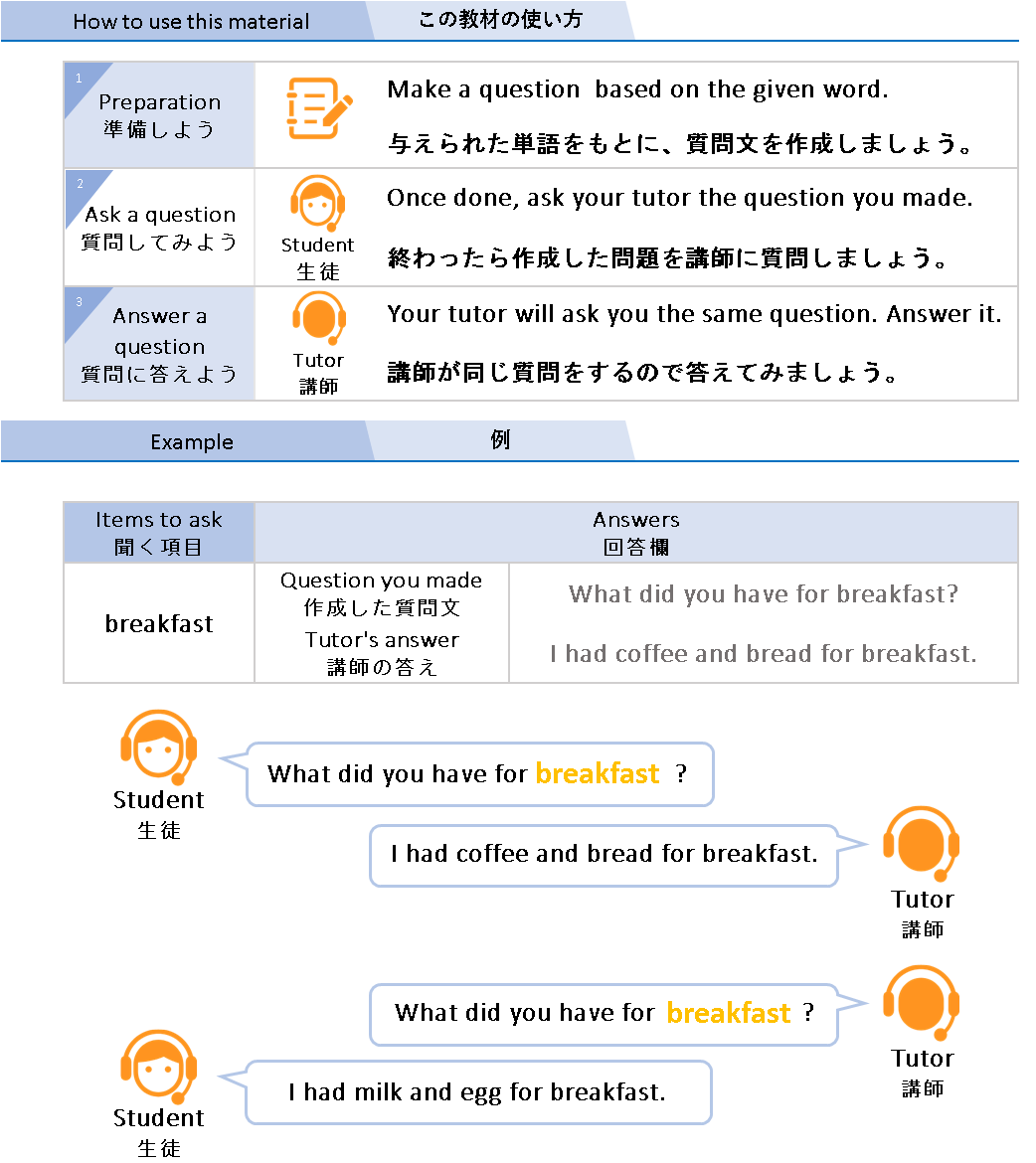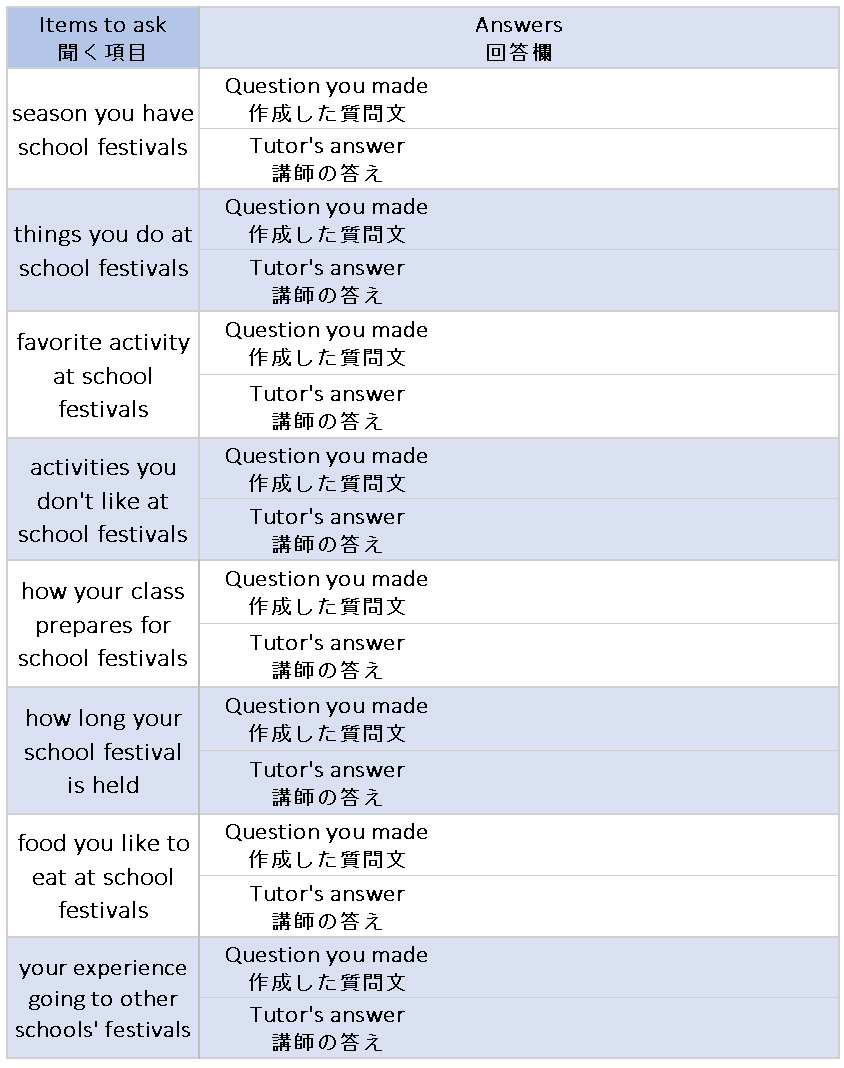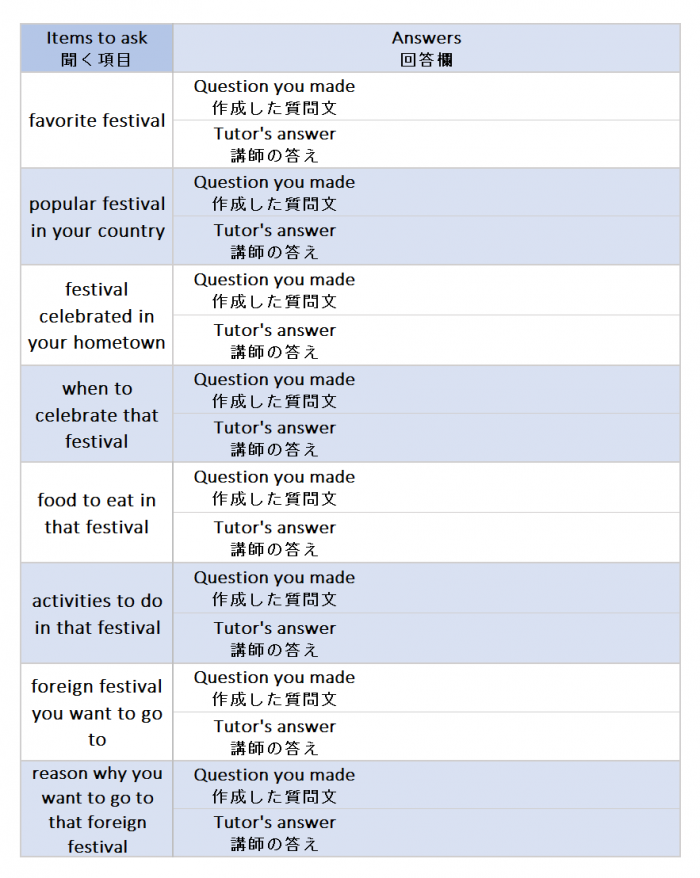DIRECTIONS
In this lesson, you will practice delivering a speech and I will ask you questions about it.
PREPARATION
Please choose a topic below and make a speech.
You have 1 minute to prepare.
Your 1 minute starts now.
You have 1 minute to prepare.
Your 1 minute starts now.
PREPARE
| 1. | How does global warming affect the world? |
| 2. | Is studying arts helpful in our daily life? |
| 3. | Should all agricultural chemicals be prohibited? |
| 4. | Should everyone study chemistry? |
| 5. | Agree or disagree: Having a good education is necessary for success. |
CHOOSE A TOPIC
Your time is up. Now, please tell me the topic you chose.
ANSWER
MAKE A SPEECH
Now, you have 2 minutes to deliver your speech. Please give two reasons to support your opinion.
Your 2 minutes starts now.
Your 2 minutes starts now.
SPEECH
QUESTION
Now, I will ask you two questions about your speech.
(Please ask two questions about your student’s speech.)
ANSWER
| 1. | |
| 2. |
PREPARATION
Please choose another topic below and make another speech.
You have 1 minute to prepare.
Your 1 minute starts now.
You have 1 minute to prepare.
Your 1 minute starts now.
PREPARE
| 1. | How does global warming affect the world? |
| 2. | Is studying arts helpful in our daily life? |
| 3. | Should all agricultural chemicals be prohibited? |
| 4. | Should everyone study chemistry? |
| 5. | Agree or disagree: Having a good education is necessary for success. |
CHOOSE A TOPIC
Your time is up. Now, please tell me the topic you chose.
ANSWER
MAKE A SPEECH
Now, you have 2 minutes to deliver your speech. Please give two reasons to support your opinion.
Your 2 minutes starts now.
Your 2 minutes starts now.
SPEECH
QUESTION
Now, I will ask you two questions about your speech.
(Please ask two questions about your student’s speech.)
ANSWER
| 1. | |
| 2. |










 Hi, Alice. We have English and science exams tomorrow, right?
Hi, Alice. We have English and science exams tomorrow, right?

 GOOD
GOOD 



